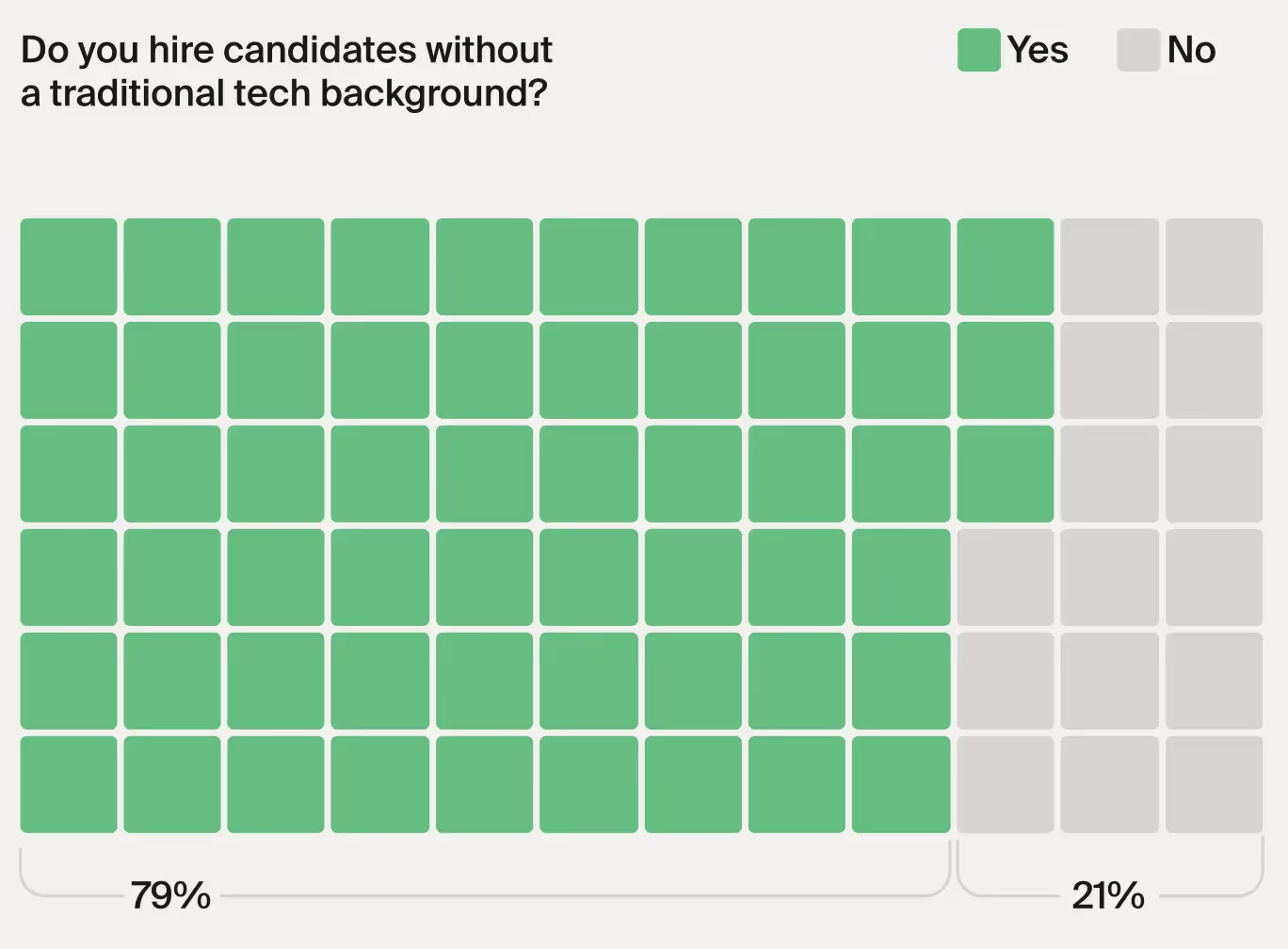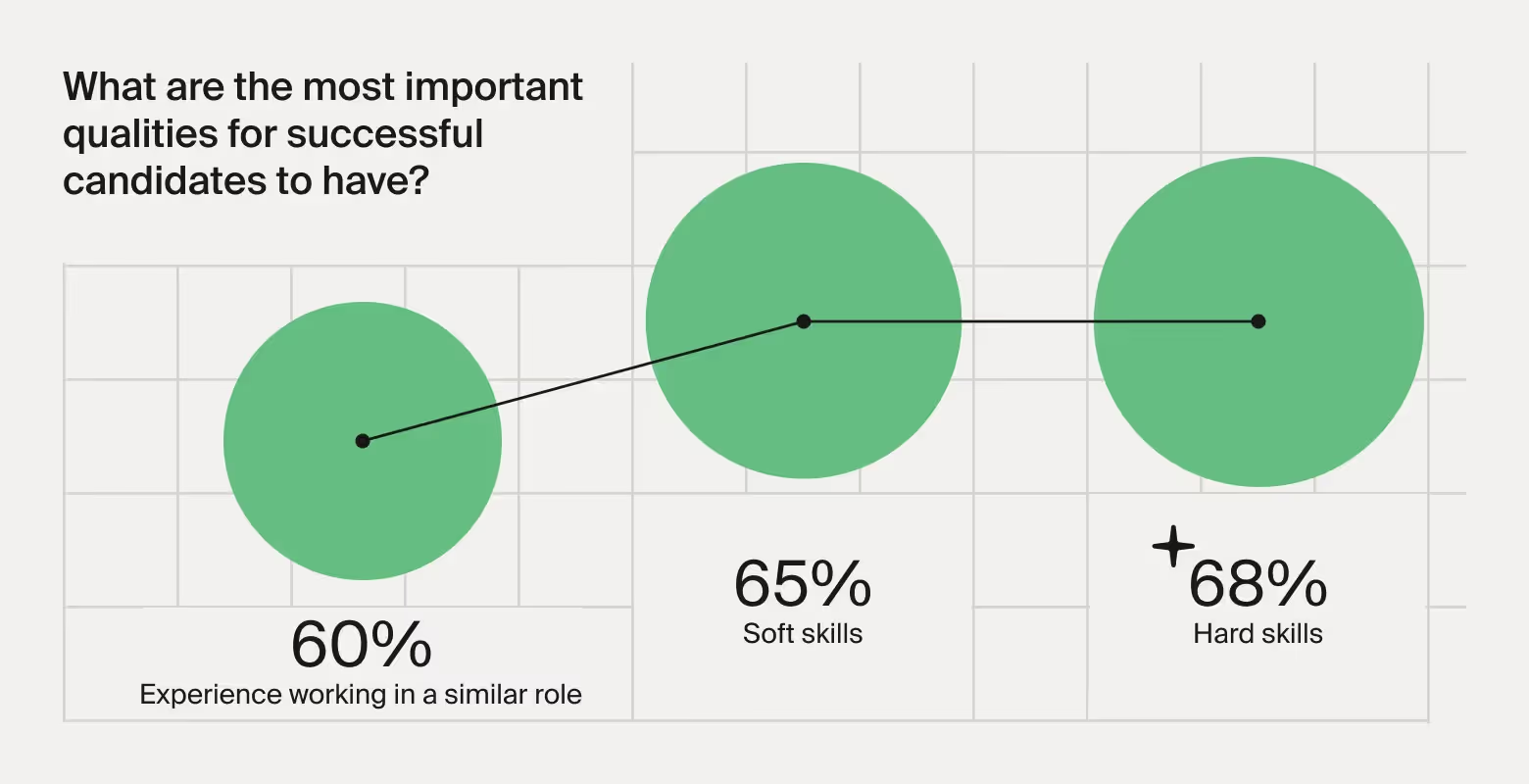%20(2).avif)

How great would life be if we could ensure things go our way? A flight we booked actually arrives on time. A pair of jeans we ordered online actually fits. Thanksgiving with the parents doesn’t become a hassle.
Sorry to say, we can’t solve all your problems. We can’t fix your vacation plans or clothing purchases or family dynamic.
But there’s one thing we can promise: You’ll get a tech job if you sign up for TripleTen’s bootcamp, guaranteed.
Yes, we actually said “Guaranteed.” Here’s what that means.
You’re thinking, “That’s an awfully big promise to make.” Maybe you’re also thinking, “I really want to start a career in tech, so this is a tempting offer.”
Here’s what we really mean when we say breaking into tech begins and ends with us:
That’s it, that’s the deal. (You can read more about our money-back guarantee policy here.)
What’s behind the guarantee
Whether you want to land a job in software and web development or information technology — or just about any other popular tech field — we’ve got you covered.
With our money-back guarantee, you’ll gain the following perks and reassurances:
Education that focuses on today’s in-demand skills
We know what tech companies care about because our curriculum and approach actively target and factor in their needs — and it’s regularly updated to keep up with the ever-changing times.
Getting into tech doesn't require a degree, and we can prove it. Our research shows that eight in 10 tech employers want and hire people from nontraditional backgrounds.

This is great news because a majority of our students and graduates get started in tech without a formal degree and come from positions in hospitality, education, and healthcare, among other unique fields.
And more than half of organizations believe hard skills as well as soft skills matter when vetting candidates.

In our bootcamps, we’re not only teaching relevant technical skills and putting them to the test in code reviews, peer discussions, and externship projects. We’re also guiding students on problem solving, how to present findings to key stakeholders (such as our real-life company partners), how to juggle competing priorities through popular tools, systems, and team-based projects, and how to answer common and complex behavioral interview questions.
Fifty percent of hiring managers look for examples of work, such as a portfolio, in the recruiting process. Our students come away with applicable proof of industry knowledge, showcased through codejams, externships, and other classroom workshops.
.avif)
Finally, over a third of companies said they’re hiring the most this year in business intelligence, data science, and software engineering — and those are the exact niches we cover!
Actionable and personalized advice from experts
Getting a job or switching careers isn’t always easy. It takes time, patience, and a community behind you.
We’re here to be our students’ job search companions, and our career services expand beyond the basics — for no additional fee.
Our experienced tutors act as mentors while students are developing key tech skills, hosting live trainings, office hours, and one-on-one sessions whenever needed. Once training is complete, or even as training is still going on, our career coaches — with backgrounds in HR and recruiting, and with both startups and Fortune 500 companies — help participants lay out job search strategies tailored to their specific career goals.
This could include a refresh or edit of their LinkedIn, GitHub, social media, portfolio, cover letter, resume, or all of the above. It could entail thorough mock interview prep. Or, it could just mean keeping in touch with a coach, alumni, or company partner as you apply and meet with employers to stay confident, positive, and connected to the tech world.
Even past completion of our bootcamps and landing a job, graduates can continue to participate in our externships and receive career coaching.
Proven graduate outcomes
We’re so confident in your future employment because we have the stats to back it up: More than 1,000 aspiring techies have completed our bootcamps, and 87% went on to land jobs within six months of graduating. Not to mention, half of our students were hired before graduation. Those jobs include stints at Google, Apple, Spotify, IBM, Discord, and Accenture, and graduates make as much as $89,300 a year on average in an entry-level role.

Employment rates are even higher for our software engineering and BI analytics programs, at 89% and 88% respectively.
What it means for your future tech career
Bootcamps are certainly not the only option to transition into tech. Many people find success with going back to school, or through self-taught methods like watching YouTube videos.
Like anything, these have their pros and cons. Undergraduate or graduate degree programs can be more immersive and prestigious, but also are more expensive and less focused on on-the-job training. Teaching yourself to code is cheap and the most flexible choice, but you can’t guarantee the advice is sound — plus, it requires self-awareness, diligence, and strong time management.
Bootcamps serve as a nice balance between the two: They’re flexible, part-time, and able to be completed online or remotely. They’re relatively affordable, and often have payment plans, scholarships, or financing options for students with low budgets.
They mimic a classroom setting, but with job training and portfolio-building opportunities updated for the modern workforce. Most importantly, they’re built to place people into the tech industry, with company partnerships, career services, and ties with tech leaders.
Is a bootcamp right for you?
You won’t know if a bootcamp makes sense for you unless you start taking steps to learn more about yourself, your learning preferences, and the programming itself.
We’ll give you a hint: Check out our five-minute self-assessment quiz, read our student success stories, or book a call with our team to get your burning questions answered.




.webp)





.avif)

